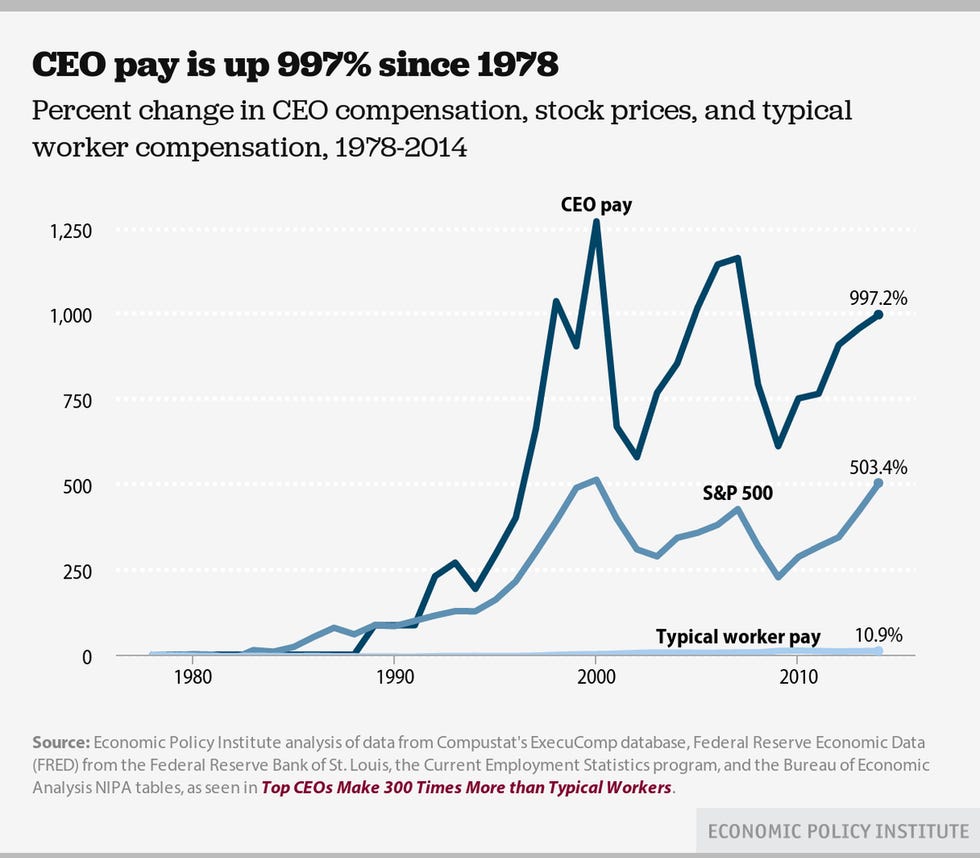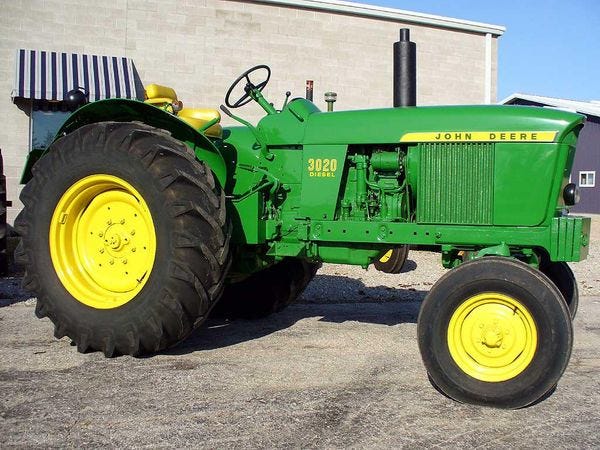#Striketober Continues: 10,000 John Deere Workers ON STRIKE
Hooray for unions!
Last night at midnight, 10,000 John Deere workers represented by the United Auto Workers union in Illinois, Iowa, Kansas, Colorado, and Georgia went on strike — making it the largest strike in the United States in two years.
Like many other workers across the nation, the John Deere workers saw their employer's profits skyrocket during the pandemic, and now they want a cut of that. Not only are they demanding higher wages and better benefits, they are demanding benefits they lost during the 1990s, when for some entirely mysterious reason manufacturing workers across the nation experienced mass layoffs and had to settle for extremely crappy contracts in order to keep their jobs.
Workers at the plants overwhelmingly voted against a new contract from the company and went on strike after the company failed to offer them a better one. The new contract included raises of 5-6 percent and the return of a cost-of-living raise they lost in a previous contract, but completely screwed new hires, so it was not too popular.
Right now, the company has a two-tiered system in which employees hired before 1997 have full pensions and healthcare benefits after they retire and those hired after that point have smaller pensions with 401Ks and no healthcare benefits after retirement. In the new contract, the company wanted to do another two-tiered system in which new hires would get 401Ks and no pension at all.
Two-tiered systems are not just bad because they screw new workers, but because they kill worker solidarity and make new hires resentful of longtime workers with better benefits.
The John Deere workers are not the only ones out there demanding better. Nabisco workers fought for and got a (mostly) better contract, Kellogg's workers in Omaha are on strike, Kaiser Permanente health care workers have authorized a strike to prevent a two-tiered benefits system, and the International Alliance of Theatrical Stage Employees are set to go on strike on Monday if they don't get concessions in their contracts that allow them to have actual lives. Check out the IATSE Stories Instagram for some pretty depressing stories on how things have been for them.
There's a reason this is all happening now. Workers are starting to know their power .
Many of the companies and industries that are now experiencing strikes made incredible profits during the pandemic. And they thought they were going to do what they normally do — reward their executives, reward their stockholders, and maybe thank the little people for all the sacrifices they made so that those executives and stockholders could be very rich. This time, however, the workers said if you wanna keep us, you better share those profits.

EPI https: //www.epi.org/publication/ceo-pay-in-2020/
For decades, people have been working their asses off just to scrape by, while wages have stagnated and profits and executive pay have boomed, partly due to the worldview that workers are entirely replaceable and should just be grateful to have a job in the first place — and that someone is always waiting in line to take their job so they better shut up and take what they can get. "Job Creators" were the belle of the ball and everyone should compete to get on their dance cards. They were the choosers, workers were the beggars. Not only were they able to demand people work for basically nothing, but, especially starting during the Great Recession, they were also able to demand that those people working for basically nothing and also have masters degrees.
The pandemic did two very important things. It reminded us all about who is "essential," who we need to keep this country going, and it created a labor shortage. Businesses are now begging workers to come back, raising wages and benefits in hopes of being able to stay in business. And the unions are starting to make a grab for the benefits they gave up in order to keep their jobs in the '90s. They want an end to the two-tiered systems that eat away at worker solidarity by making new workers resentful of older workers' benefits.
Interestingly, not only is the regular media actually covering the strikes, they're giving them positive or at least fair coverage.
America on strike? 10,000 John Deere employees walk off the job amid contract dispute. @TerryMoran reports.… https: //t.co/vhVoycn2cQ
— Good Morning America (@Good Morning America) 1634209556.0
That's a really big deal. A lot of what killed unions, to some degree, was a negative portrayal of them in media. The news tended to focus on the way workers were inconveniencing the American people, how ungrateful and greedy they were to not accept the contracts offered to them, how corrupt the union bosses were, etc. etc. This is also a very big reason it was so easy to pass Right-To-Work laws.
The fact that this is changing is important and is a pretty good sign that things are about to change for people, for the better.
[ Labor Notes ]
Do your Amazon shopping through this link, because reasons .
Wonkette is independent and fully funded by readers like you. Click below to tip us!




Did you know that Abraham Lincoln exchanged friendly letters with Karl Marx?
I'm not sure how to explain "if it's something you're gonna be in for long periods of time it should be comfortable" .